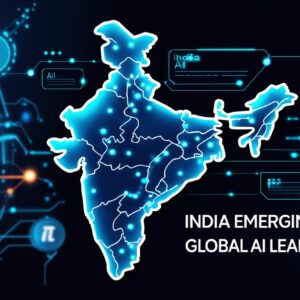Ideology as the Backbone of Politics
Uttar Pradesh (UP), India’s most politically significant state, has long been a battleground for competing ideologies that reflect its diverse cultural, social, and economic landscape. From the Gandhian ideals of inclusivity and grassroots empowerment to the assertion of caste and religious identities, political views in UP are deeply rooted in philosophical frameworks. These ideologies not only influence governance but also shape the state’s electoral dynamics, development trajectory, and societal structure.
Key Philosophical Underpinnings in UP’s Politics
1. Gandhian Principles of Grassroots Empowerment
- Legacy:
- Rooted in Mahatma Gandhi’s vision of self-reliance and communal harmony, Gandhian philosophy initially shaped Congress-led governance in UP.
- Leaders like Sucheta Kripalani and Govind Ballabh Pant emphasized rural development, education, and inclusive policies.
- Contemporary Relevance:
- These ideals find echoes in schemes promoting rural livelihoods, such as the Mahatma Gandhi National Rural Employment Guarantee Act (MGNREGA), although their implementation often sparks debates about efficacy.
2. Socialist Ideals of the Samajwadi Party (SP)
- Foundation:
- Inspired by Ram Manohar Lohia’s socialist philosophy, the SP emphasizes equality, social justice, and the upliftment of marginalized communities.
- Impact:
- Under Mulayam Singh Yadav and Akhilesh Yadav, the party built a strong support base among OBCs, Muslims, and rural voters.
- Policies like free education for girls and subsidized electricity reflect its commitment to welfare but are often criticized as populist measures.
3. Ambedkarite Vision of Dalit Empowerment
- Influence:
- B.R. Ambedkar’s philosophy of annihilating caste and ensuring Dalit rights underpins the Bahujan Samaj Party’s (BSP) ideology.
- Impact:
- Mayawati’s tenure as UP’s first Dalit Chief Minister symbolized a significant shift in power dynamics.
- The emphasis on Dalit identity through the establishment of Ambedkar parks and memorials has reinforced cultural pride but also drawn criticism for prioritizing symbolism over systemic change.
4. Hindutva and Majoritarianism
- Evolution:
- The BJP’s ideological framework draws from Hindutva philosophy, emphasizing cultural nationalism and religious identity.
- Political Strategy:
- Leaders like Kalyan Singh and Yogi Adityanath have championed this ideology, leveraging religious narratives like the Ram Mandir movement and Kashi Vishwanath Corridor redevelopment.
- Criticism:
- While Hindutva strengthens cultural identity among Hindu voters, critics argue it risks marginalizing minority communities and deepening polarization.
Key Ideological Clashes in UP Politics
1. Caste vs. Class
- Conflict:
- Ambedkarite and socialist ideologies focus on caste empowerment, while Gandhian and Hindutva philosophies often emphasize class or cultural identity.
- Manifestation:
- Policies like caste-based reservations and welfare schemes reflect these competing priorities.
2. Secularism vs. Religious Identity
- Conflict:
- The SP and Congress promote secularism and minority inclusion, while the BJP prioritizes Hindu cultural narratives.
- Manifestation:
- Issues like the Citizenship Amendment Act (CAA) and debates over religious conversions highlight this ideological divide.
3. Welfare vs. Development
- Conflict:
- Socialist and Ambedkarite parties emphasize welfare-driven policies, while Hindutva and Gandhian frameworks advocate development as a means to societal upliftment.
- Manifestation:
- Infrastructure projects like expressways symbolize BJP’s development agenda, contrasting with BSP and SP’s focus on direct welfare benefits.
Philosophical Influence on Voter Behavior
1. Identity Politics
- Impact:
- Caste and religion remain the most significant factors influencing voter allegiance in UP, often overshadowing developmental priorities.
- Example:
- SP’s reliance on Yadav-Muslim coalitions and BSP’s Dalit support base demonstrate the enduring power of identity-driven ideologies.
2. Aspirational Politics
- Impact:
- Young and urban voters are increasingly drawn to narratives emphasizing infrastructure, employment, and digital governance, aligning with development-centric ideologies.
3. Grassroots Mobilization
- Impact:
- Gandhian and socialist philosophies continue to resonate with rural populations, where traditional socio-economic structures dominate political preferences.
Steps Toward Bridging Ideological Divides
- Encourage Inclusive Narratives
- Focus on policies that address both identity-based and universal developmental concerns, ensuring equity across communities.
- Strengthen Civic Education
- Promote awareness about the philosophical foundations of political ideologies to foster informed electoral choices.
- Foster Bipartisan Collaboration
- Facilitate dialogue between parties to prioritize long-term state development over ideological conflicts.
- Leverage Youth Engagement
- Mobilize young voters to demand accountability and policies that transcend traditional ideological divides.
Conclusion: The Role of Philosophy in Shaping UP’s Future
The interplay of ideologies in Uttar Pradesh politics reflects the state’s diversity and complexity. While these philosophies have historically empowered marginalized communities and driven development, their instrumentalization for electoral gains risks deepening divisions.
The future of political discourse in UP lies in harmonizing these ideologies to create an inclusive vision that prioritizes progress without compromising cultural identity or social equity. By fostering dialogue and bridging divides, UP can harness the strengths of its diverse philosophical heritage to build a more united and prosperous state.








